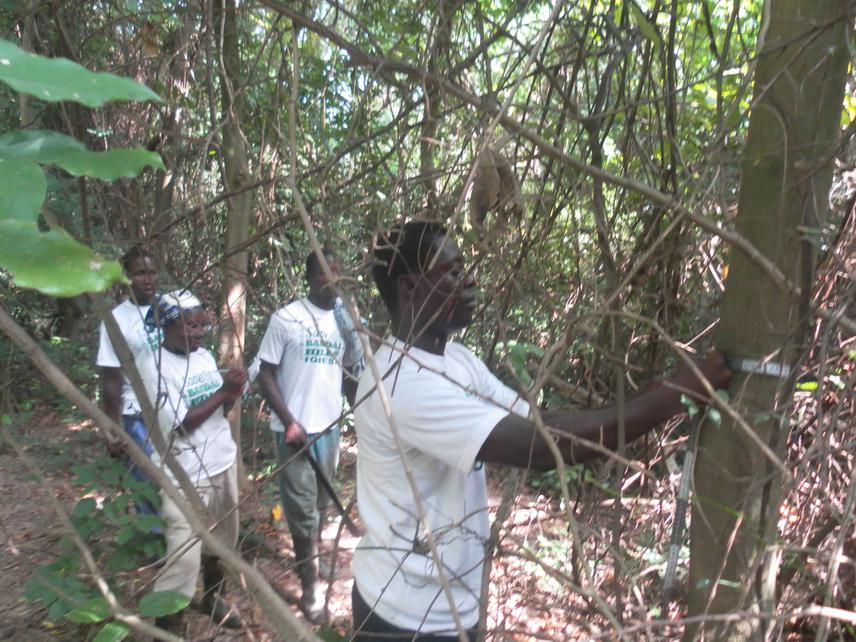Jacqueline Sapoama Kumadoh
The aim is to gather baseline data on the ecology of the endemic Ghana Worm Lizard (Cynisca kraussi), other herpetofauna in the Bandai Hills Forest Reserve and educate local stakeholders.
Ghana is part of the Upper Guinean Rainforest, which ranks among the world’s most important biodiversity hotspots (Myers et al. 2000). Nearly 90% of the rainforest has been destroyed in the past century. The remaining forest harbours a large number of endemic and threatened herptofaunal species (Hillers et al. 2009), including the Ghana worm lizard (Cynisca kraussi).

Team members measuring tree DBH.
The Ghana worm lizard is endemic to Ghana, restricted to only two locations at the Banda Hills Forest Reserve in southern-eastern Ghana and it is listed by IUCN as Endangered. To date there have not been any dedicated focal surveys to locate the species. However, the species’ only known habitats are currently rapidly being destroyed for farming, mining and logging activities. Another more important threat the endemic worm lizard and other herpetofauna face is future development of the Bandai Hills for the construction of a large hydroelectric dam (Environmental Resources Management and SGS Environment, 2006). This project will provide crucial biological information about the species occurrence at its ecotype, the Bandai Hills FR, in terms of its distribution, population dynamics and habitat requirements. Its distribution which is currently known to be restricted to only two locations at the Bandai Hills will be clearly understood; we will develop the species’ distribution maps to show exact locations. On top of benefitting the endemic worm lizard, the project will also assess the occurrence of other herpetofaunal species that overlap the range of the worm lizard.
This project will also serve as a platform for increasing local awareness on the effects of habitat degradation on the biodiversity of the area and particularly the existence of the endemic worm lizard. Through radio broadcasts, workshops and school out-reaches, the awareness creation is expected to encourage an attitudinal change towards the protection and management of this important conservation site. For stronger political campaign, we will involve and make our project findings available to influential stakeholders including the Forestry Commission; Ministries of Land and Natural Resources, Energy, and Tourism. We are also collaborating with Ghana’s two herpetological organizations, SAVE THE FROGS! Ghana (www.savethefrogs.com) and HERP-Ghana (www.herpeghana.org), who are at the forefront of herp conservation.